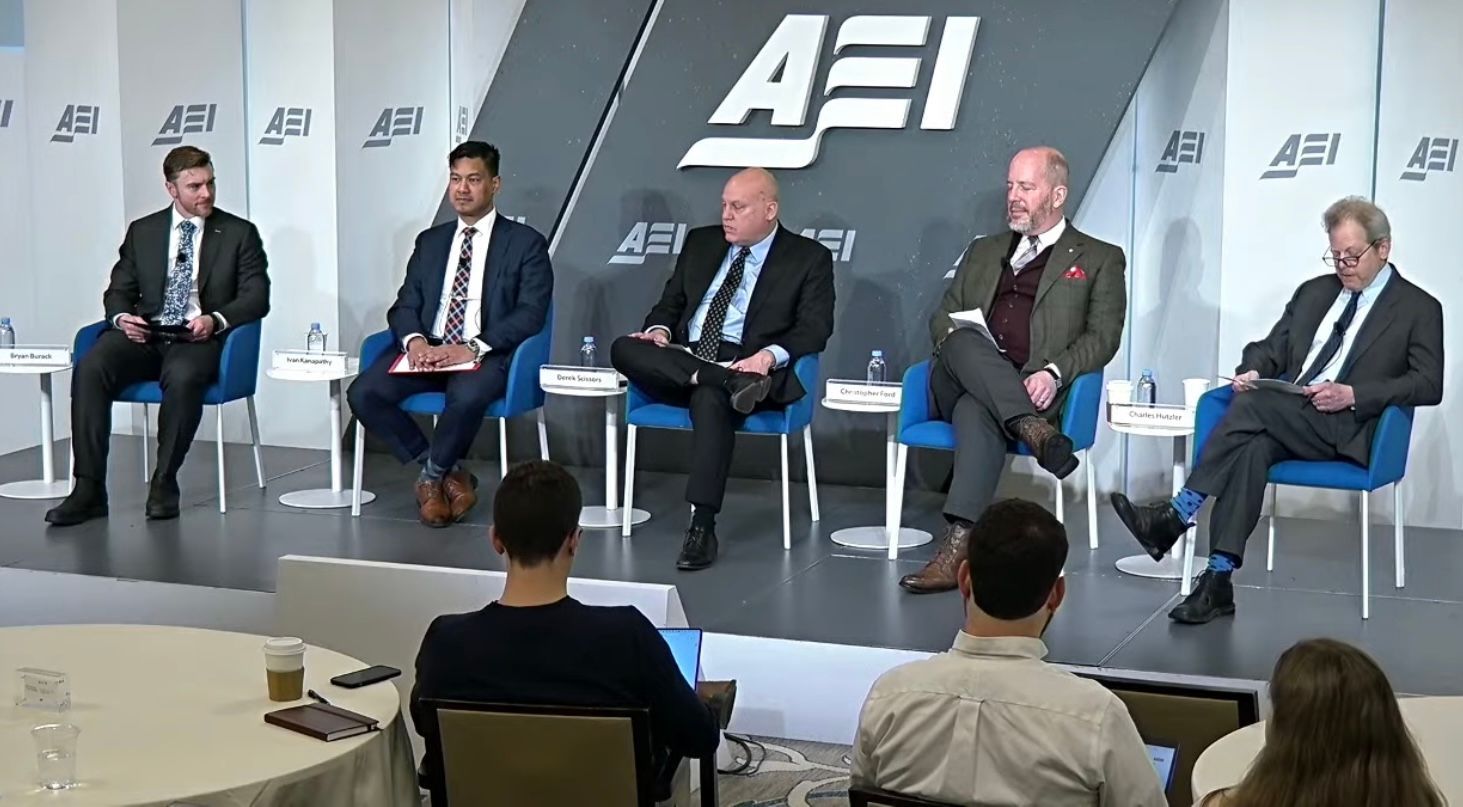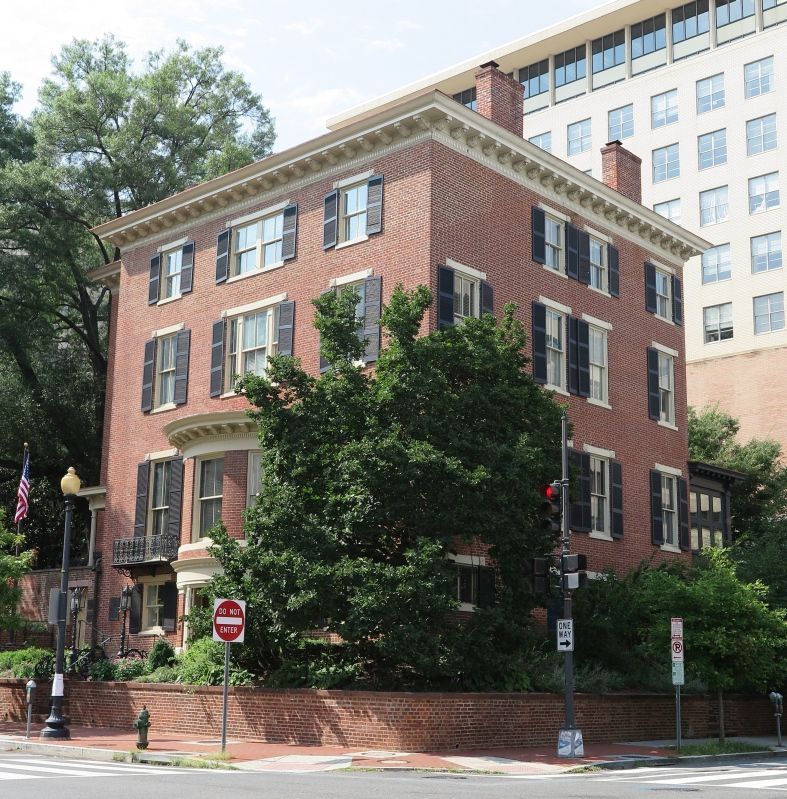The Hon. Christopher A. Ford
New Paradigms Forum -- International Security Policy Since 2009
GUEST BLOG: George Perkovich on “Iran: The Power of Rules”
Note:
This is the text of an essay George Perkovich provided to NPF in the form of a “Policy Outlook” paper from Carnegie. (Ford’s response is the next entry on this blog.)
“ IRAN: THE POWER OF RULES ,” by George Perkovich
Summary
The first phase of renewed international negotiations with Iran made unexpected progress, although history suggests that Iran could backtrack on its pledges. Iran’s willingness to negotiate after years of bellicose posturing reflects the power of legality. Since late 2002, Iranian officials have emphasized international law in defending their country’s actions and denouncing those of the United States and the UN Security Council. The Iranian leaders’ focus on legitimacy can now be turned against them. The discovery of the Qom uranium enrichment plant breaches Iran’s legal defenses and may intensify the domestic challenges to Iranian President Mahmoud Ahmadinejad. In a pincher movement, President Obama has dramatically raised the international legitimacy of U.S. policy toward Iran by demonstrating resolve to negotiate a peaceful accommodation with the Islamic Republic. Obama’s approach, and Iran’s clear misconduct, have put the Iranian government on the defensive.
Iran’s Legalistic Strategy
Whatever the aims of its nuclear program, Iran is determined to convince the international community that it is acting within laws and rules. Iran’s leaders and population want to be seen as just and to be treated justly. Laws establish which actions are just and which are not. To break the laws is to risk losing the shield that legitimacy gives political leaders and states to ward off competitors.
To be sure, many Iranian officials have acted unjustly during and after the June elections, seeking to keep power at any cost. These transgressions only stress the point: Iran’s domestic political opposition will not give up; the government’s lost legitimacy makes it vulnerable; and its security services have to temper their repressive measures or risk raising even more domestic and international pressure against the leadership. Similarly, Iranian leaders have broken many nuclear rules, too. But by always claiming that they have been falsely accused, or have a different understanding of the rules, they show the importance they ascribe to being perceived as within the law. Law provides leverage to those who use it best.
In 2003, the Natanz uranium enrichment plant was exposed and eighteen years of Iranian nonproliferation rule violations were documented. Iran’s chief negotiator, Hasan Rowhani, recognized that the country could get most of what it wanted by adhering to the Nuclear Non-Proliferation Treaty. Conversely, Iran would become highly vulnerable to isolation, sanctions, or attack if it acted outside the law. Existing rules—interpreted narrowly—would allow the country to develop capabilities that would bring it very close to acquiring nuclear weapons. From 2003 onward, the challenge for the Iranian leadership was to persuade the rest of the world to forget about or “negotiate away” its earlier violations and allow it to move forward under existing rules. After 2005, Ahmadinejad expressed part of this strategy by declaring that “the nuclear file is closed,” and that Iran will exercise without interruption its “rights” to all nuclear technologies and activities under IAEA safeguards.
A key to the Iranian strategy was the need to rally other non–nuclear-weapon states to block any tightening of international rules. This would enable the Iranians to preserve the option of acquiring a non-weaponized deterrent — fissile material, bomb-making know how, and missiles — under existing rules. Iran has largely succeeded in this strategy. Many countries, particularly among the Non-Aligned Movement, have resisted making the more robust inspection procedures of the Additional Protocol a universal norm or a condition of international cooperation. Others also have joined Iran in blocking attempts to limit national fuel-cycle options. While Iran has less support in the NAM than it sometimes appears, Tehran has found willing partners in impeding efforts to make it harder to acquire near-weapon capabilities without breaking the rules.
Iran’s legalistic strategy has had domestic purposes too. The government insists on being righteous and just. It welcomes opportunities to accuse its adversaries of being unjust and discriminating against Iran, drawing on the emotional well of early Shi’i history. Unsurprisingly, the narrative of Iran defending its nuclear rights resonated. The Iranian government managed to confuse many people at home and abroad into thinking that the United States and UN Security Council were abrogating Iran’s nuclear rights.
In fact, Iran, like all other NPT non–nuclear-weapon states, has rights to nuclear activities for peaceful purposes only. It has no rights under the NPT to conduct activities that are not exclusively peaceful. By speaking of the “nuclear program” and “nuclear rights,” Iran and most outside commentators have created the impression that Iran’s fuel-cycle activities are within its rights. This is not true. The NPT entitles states to nuclear cooperation only so long as their nuclear activities are exclusively peaceful. Adherence to IAEA safeguards is vital to demonstrating the required peacefulness. Iran broke its safeguards obligations, which is why its “case” was reported to the UN Security Council. The Council’s ensuing resolutions are legally binding, but Iran dismisses the legal validity of its case being sent to the Security Council in the first place. Iran has based its claims of legal propriety on the IAEA’s reports that it has maintained safeguards on its enrichment-related activities and that no material has been diverted from its declared facilities.
Iran’s legal “case” was tendentious, of course—even specious. The IAEA’s latest Director General’s report states that Iran has not “cooperated with the Agency in connection with the remaining issues of concern which need to be clarified to exclude the possibility of military dimensions to Iran’s nuclear program.”1 Yet, the point is that the leadership felt the need to frame its actions in law. The government gained domestic support for defending its perceived legal rights. Legalism was a political virtue.
The Qom Mistake
Whoever decided to build the secret enrichment plant at Qom made a big mistake by departing from the strategy of exploiting the rules without breaking them. This mistake will be compounded if and when news of other undeclared dual-use facilities comes out. To be sure, Iranian nuclear functionaries tried to stretch the letter of the rules to cover for their violation in March 2007, when they declared that they were no longer bound by Code 3.1 of their subsidiary safeguards arrangement with the IAEA.2 This code requires a state to notify the IAEA when a new nuclear facility is planned, well before construction begins. If valid, Iran’s renunciation of Code 3.1 would have left it legally obligated to declare a facility to the IAEA only 180 days before nuclear material is introduced into it. But as IAEA Director General Mohammed ElBaradei has stated, Iran was not legally entitled to drop adherence to Code 3.1.3 ElBaradei’s unequivocal statement that Iran was on the wrong side of the law was extremely important. It removed the excuse many other countries—and some Iranian elites—could use to defend the Iranian position. The government now feels enormous pressure to find a face-saving way to put itself back on the side of the law.
The revelation of the Qom facility has endangered what had been a winning Iranian strategy. Under the spotlight of international attention, Iran was caught breaking laws covering enrichment-related activities. This violation belied the government’s protestations that whatever violations occurred prior to 2003 were history and that Iran was acting righteously now. Iranian leaders, in short, were exposed as liars and law-breakers. This has angered and disappointed many within and outside Iran who gave it the benefit of the doubt on the issue of rights and rules.
One can speculate that with Ahmadinejad’s ascent in 2005, the Revolutionary Guards and other drivers of the nuclear program became over-confident, or too eager to acquire nuclear weapons capability. They decided to go beyond the Rowhani strategy and break the laws in new ways. Now that they have been exposed, Iranian leaders are caught between the law and a hard place. Either they negotiate back into compliance with the rules and restore international confidence, or they abandon any pretense of being law-abiding members of the international community and accept the risks of being known to seek nuclear weapons.
Obama and the Contest for Legitimacy
The pressure on Iran comes from changes in the U.S. approach too. Iran has sought to make the world fear what the U.S. would do to stop its nuclear activities more than it fears those activities themselves. The Bush Administration played perfectly into this Iranian strategy. Though it altered its line after 2005 and sought diplomatic engagement with Iran, no one believed it. The disdain many felt for the Bush administration has made things easier for President Obama, who offered change that could be believed in
But only to a point. Iranian officials were still highly skeptical that the United States would actually change its strategy, grant Iran its legal due, and agree to live peacefully with the Islamic Republic. But Obama’s insistence that he wanted to negotiate a modus vivendi with the Islamic Republic gained credibility, especially as he came under attack at home and from Israel for being too soft on Iran. Obama’s non-exploitation of the domestic upheaval in Iran, and his steadfast signaling to the government that he would deal with it, even as many Democrats and Republicans urged him to turn away from negotiations and actively support the opposition, actually put pressure on the Iranian government. It deprived them of excuses for refusing to be more transparent on nuclear issues and resolving outstanding issues with the IAEA.
The Iranian elections and subsequent repression furthered the shift of international support away from Iran to the United States. Whereas years earlier, people feared the United States more than they feared Iran getting away with its nuclear violations, now, people want Iran to be more accommodating. Defense Secretary Gates has helped by regularly and clearly saying that military force could not solve the problems with Iran.
The Qom revelations have probably hurt the Ahmadinejad clique within Iran, too. The image of being caught breaking the law internationally reinforces the narrative of law-breaking and deception that undermines the regime at home. The government that lies, cheats, and thuggishly flexes muscles at home has been caught lying, cheating, and preparing to flex its muscles abroad. A government of this sort does not inspire self-respect among its citizens and cannot count on their support over time.
This analysis suggests that the long-needed shift in pressure has occurred. The Iranian government now feels pressed to change its policies. Whereas international politics from 2003 through 2008 focused more on the need for change in the U.S. approach to Iran, the dynamic has now reversed.
The Rule-Based Solution
Rules are the key to maintaining necessary pressure on Iran and framing a mutually-acceptable, face-saving outcome. Iran must take steps to build and maintain international confidence that all its nuclear activities are peaceful, and that none have military dimensions. This requires Iranian leaders to do nothing more than act on their own rhetoric—to be truthful and righteous, rather than deceitful and menacing.
The United States and its negotiating partners have the know-how to develop an enforceable agreement with Iran that would classify which nuclear activities are peaceful and which are not. Such an agreement must be unprecedented in detail, so as to build confidence that Iran will not try to game the system as it has done in the past. The NPT never defined weaponization. A negotiation with Iran should do this, and that model should be applicable to all countries under the NPT. If enrichment is to continue in Iran―whether or not it is temporarily suspended―it must be done under terms that objectively give confidence that weaponization will not occur. By defining what would constitute weaponization, an agreement of this sort would not undermine anyone’s rights to peaceful nuclear energy.
Notes
1 Implementation of the NPT Safeguards Agreement and relevant provisions of Security Council resolutions 1737 (2006), 1747 (2007), 1803 (2008), and 1835 (2008) in the Islamic Republic of Iran, report by the Director General, International Atomic Energy Agency, August 28, 2009.
2 “What Else Is Iran Hiding?” James M. Acton and Nima Gerami, Foreign Policy , September 28, 2009, http://www.foreignpolicy.com/articles/2009/09/28/what_else_is_iran_hiding ; statement by Mohammed ElBaradei as quoted in, James M. Acton, “Iran Violated International Obligations on Qom Facility,” Carnegie Endowment for International Peace, Proliferation Analysis, September 25, 2009, http://www.carnegieendowment.org/publications/index.cfm?fa=view&id=23884&prog=zgp&proj=znpp.
3 Construction of the Qom facility began before Iran’s March 2007 attempt to escape the obligation to declare facilities before construction. So this construction undeniably violated the rules. Presumably at least some of the relevant decision-makers knew this. Thus, the March 2007 effort to withdraw from Code 3.1 obligations looks like a post facto attempt to gain legal cover. It would be extremely illuminating to know who was involved in this series of decisions and how the decisions were made to start the undeclared construction and then to attempt to withdraw from Code 3.1.



Copyright Dr. Christopher Ford All Rights Reserved






